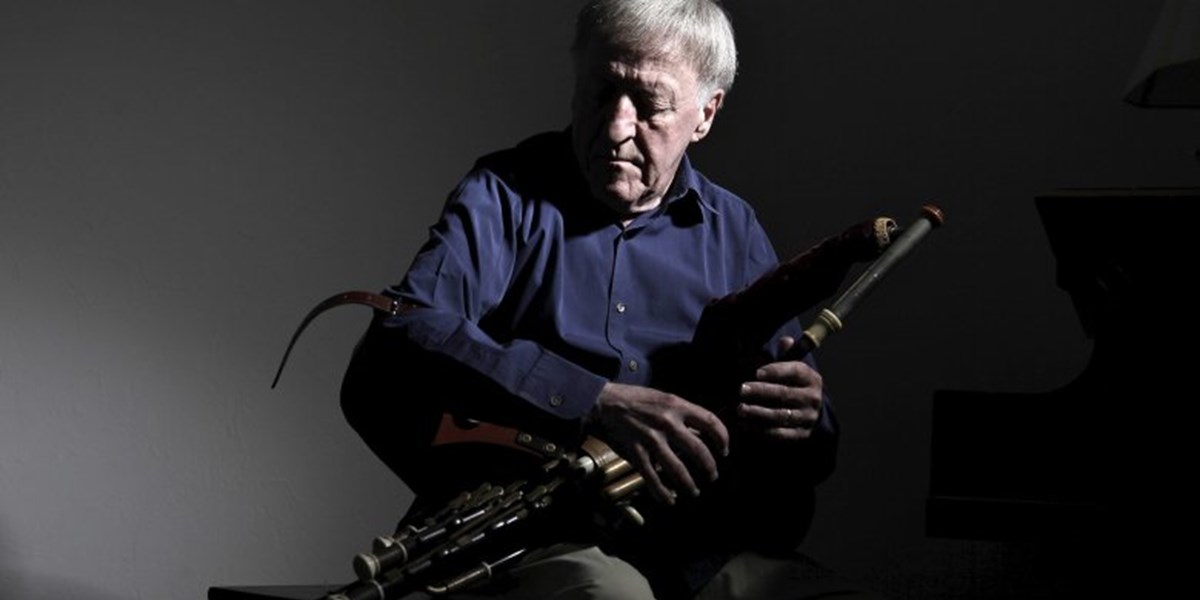Monday, October 11, 2021
Obituary: Paddy Moloney (1938-2021)
Founder and leader of traditional Irish group The Chieftains, who performed with rock stars and for world leaders, and whose musical reach extended from the Great Wall of China to the International Space Station, has died aged 83

Paddy Moloney, who has died aged 83, was one of the most successful and popular ambassadors for Irish traditional music over the past half century and more. The founder and guiding light behind the globally-acclaimed The Chieftains, Moloney was a prolific and perennially curious collaborator who crossed one musical boundary after another to work with luminaries as diverse as Paul McCartney, Luciano Pavarotti, Van Morrison and Willie Nelson.
Born in Dublin into a musical family, Moloney was playing whistle by the age of six and later studied uilleann pipes with the Leinster-based pipe master Leo Rowsome. Teaching himself the button accordion and bodhrán, he gained early experience playing in small ensembles.
In 1960 he joined Seán Ó Riada's pioneering band Ceoltóirí Chualann. The connections he made there led to him forming The Chieftains in 1962. Though The Chieftains are now pre-eminent among internationally recognised Irish groups, it took the best part of a decade to reach a substantial audience outside of Ireland. A 1975 concert at London's Royal Albert Hall was the group's first significant step towards wider acclaim.
The same year Moloney led The Chieftains on a high-profile foray into film music, contributing to the Oscar-winning soundtrack for Stanley Kubrick's Barry Lyndon. Later screen outings included Braveheart and Martin Scorsese's Gangs of New York, alongside scores for theatre and ballet.
For a time he had a parallel career as a producer with the Dublin-based Claddagh Records, producing some 45 albums for the label from the late 1960s onwards that inked in the label's reputation for supporting the repertoire and promoting emerging artists.
Moloney's near-50 recordings have garnered 21 Grammy nominations, winning on six occasions in as many years in what proved to be a late flourish for a band then in its third decade. Two Grammys in 1993 for An Irish Evening and Another Country were followed by recognition for The Celtic Harp (1994), 'Have I Told You Lately' (1996), Santiago (1997) and 1998's Long Journey Home.
Ever quizzical about the musical styles and cultures he encountered in a life spent largely on the road, it was Moloney who steered The Chieftains towards memorable partnerships with Cuban flute virtuoso Richard Egües, Galician piper Carlos Núñez and Basque musician and composer Kepa Junkera. He also led the group's explorations into other musical terrains, including Irish traditional music's abiding influence in Newfoundland, while variously venturing into the worlds of country and western, rock, pop, Americana and classical music.
The Chieftains achieved celebrity status playing for American presidents, Pope John Paul II and Queen Elizabeth, and, in 1983, as the first Western band to be invited to perform on China's Great Wall. In a rare tribute, Moloney's pennywhistle and fellow Chieftain Matt Molloy's flute were taken into space by NASA astronaut Cady Coleman and played on the International Space Station in 2012.
If Moloney’s own fame in recent years, fêted by newspapers and chat-show hosts around the world, threatened to overshadow The Chieftains' own standing, the band remained central to his musical life, Moloney touring with the group as recently as March 2020 until the pandemic intervened. And for all the cross-fertilising collaborations that became a later signature of their work, Moloney kept The Chieftains' roots firmly planted in the tradition he had inherited and to which he added so much.
Paying tribute to him, Irish president Michael D Higgins says, "Paddy, with his extraordinary skills as an instrumentalist… was at the forefront of the renaissance of interest in Irish music. He brought a love of Irish music not just to the diaspora, but to all those across the world who heard his music and appreciated it for its own sake as it transcended all musical boundaries."

